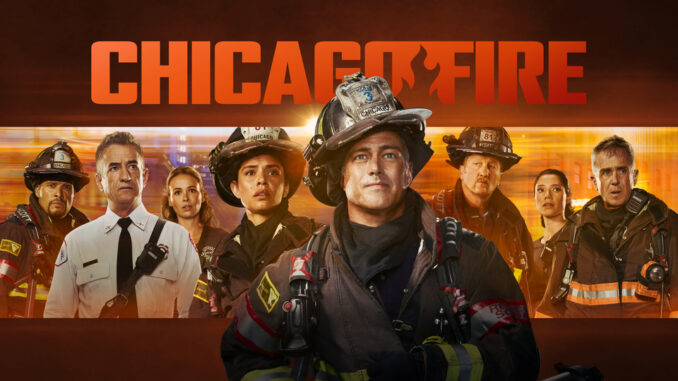
A Glimmer Through the Cracks: Brandon Larracuente, Chicago Fire, and the Oxygen of New Beginnings
Chicago Fire, like a beloved, battle-scarred engine, has long navigated the turbulent thoroughfares of television drama. For over a decade, Firehouse 51 has been our beacon, its siren song a familiar comfort. But even the sturdiest structures accumulate dust, and even the most cherished narratives can, at times, become heavy, laden with the weight of years, the echoes of goodbye, and the perpetual cycle of romantic entanglement and dissolution. It is into this often-stifling atmosphere, amidst the lingering scent of past heartbreak and the hum of predictable tension, that Brandon Larracuente, as Daniel Robinson, arrives – a genuine breath of fresh air.
The landscape of Chicago Fire has, for a considerable time, been defined by its “breakups.” Not just the literal, heart-wrenching departures of foundational characters like Matt Casey, who left an almost tangible void, but also the more subtle, yet equally impactful, emotional separations within the core relationships. We’ve witnessed the strain on Stella Kidd and Kelly Severide, their love a tightrope walk over career demands and lingering shadows. We’ve seen Sylvie Brett’s tumultuous journey through several significant romantic arcs, each ending leaving a delicate scar on the show’s emotional fabric, a collective sigh from an audience deeply invested. These narratives, while realistic and often compelling, can, over time, create a sense of emotional exhaustion, a familiar ache that, while understood, rarely inspires renewed exhilaration. The dramatic well, while deep, occasionally feels drawn from the same bucket, leading to a yearning for something novel, something different.
Enter Brandon Larracuente. His arrival is not just another face to fill a spot; it is a narrative intervention, akin to flinging open a window in a room grown warm and heavy with the scent of old memories and unresolved tensions. Larracuente, known for his roles in 13 Reasons Why and the Party of Five reboot, carries with him an inherent youthfulness, an earnestness that feels untainted by the complex, interwoven histories of the veteran characters. As Daniel Robinson, the new paramedic, he steps onto the scene with an almost visible lightness, a nascent energy that contrasts sharply with the world-weary wisdom and trauma-informed resilience of his seasoned colleagues.
This “breath of fresh air” manifests in several crucial ways. Firstly, there’s the sheer novelty of his presence. Robinson doesn’t carry the baggage of past relationships with existing characters. He isn’t caught in the undertow of established romantic histories or professional rivalries. He’s a blank slate, offering new perspectives, new sources of conflict, and, most importantly, new opportunities for genuine connection, unburdened by years of narrative precedent. His interactions with Violet Mikami, for instance, immediately offered a lighter, more playful dynamic than what fans had become accustomed to, a spark of innocent flirtation rather than the intricate dance of established, complicated feelings.
Secondly, Larracuente’s fresh energy has the potential to rejuvenate existing dynamics. Just as a new ingredient can subtly alter the entire flavor profile of a dish, a new personality can re-energize the established cast. His youthful perspective might challenge the cynicism of some, inspire mentorship from others, or simply provide a conduit for humor and lighter moments that have, at times, been overshadowed by intense dramatic arcs. He offers a chance for the ensemble to react and evolve in ways that might have become stagnant with only the familiar faces.
Finally, and perhaps most importantly, Larracuente represents hope. Amidst the continuous ebb and flow of departures and the cyclical nature of breakups – whether of a relationship, a partnership, or even a sense of stability – a fresh face symbolizes renewal. It’s a reminder that life, and indeed the show, goes on. It offers the promise of new storylines, new relationships, and new challenges that aren’t merely replays of what has come before. Like the first crisp day of autumn after a long, humid summer, Larracuente’s presence promises a shift, a clearing of the air, and a renewed vigor for the journey ahead.
Chicago Fire has always excelled at portraying resilience, the steadfast spirit of those who run towards danger. But even the bravest among us need moments of lightness, infusions of novelty to maintain that spirit. Brandon Larracuente’s arrival is more than just a casting decision; it is a deliberate narrative choice to re-oxygenate a show that, while beloved, was showing signs of emotional fatigue. He is, quite literally, a breath of fresh air, allowing the audience, and perhaps even the characters themselves, to inhale deeply and anticipate the uncharted, exhilarating currents yet to come.
